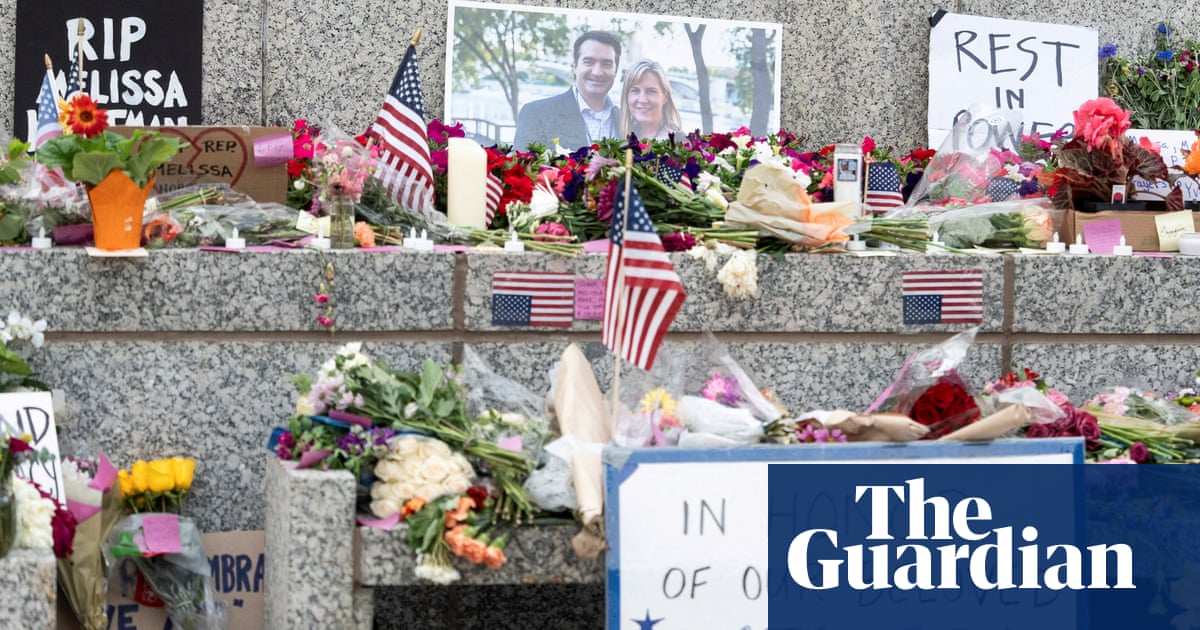Advocacy groups associated with the left are urging some Republicans not to go along with a plan to cut health and food benefits to the poor.
The lobbying campaign comes as Democrats are nearly powerless to stop the “One Big Beautiful Bill” act – a 1,100-page package of Donald Trump’s legislative priorities, from deporting migrants to building a border wall. Republicans hold majorities in both the House and Senate.
“Pediatricians are losing sleep at night over this program,” said Dr Sue Kressly, the president of American Academy of Pediatrics, in a press call on Tuesday.
“There are going to be short-term impacts where we really see hungry kids and the impact on their growth trajectory,” she continued, “and then medium-term impacts, in which you stress the entire family and the family has to make decisions about – ‘Do I pay for food? Do I pay for safe housing? Do I pay for visits to the doctors?’”
Some of the most controversial provisions in the bill, and which have drawn scrutiny even from Republicans, include cutting billions of dollars in food and health benefits to the poor to offset the new Trump programs and an extension of tax cuts to well-off Americans.
Although the “beautiful bill” left the most controversial cuts on the table, it would still make major changes to federal health and food assistance programs called Medicaid and the Supplemental Nutrition Assistance Program (Snap), known colloquially as “food stamps”.
Medicaid is a public health insurance program for the low-income, disabled and elderly that insures roughly 71 million Americans. In just one example of its impact, the program pays for nearly half of all births in the US. Snap or “food stamps” provides extra cash for groceries to 42 million low-income Americans, and is a lifeline for many to purchase nutritious foods, which tend to be more expensive.
On Tuesday, the non-partisan Congressional Budget Office (CBO) released its latest “score” of the bill, finding that it would cut $698bn from Medicaid and $267bn from food assistance. At the same time, tax cuts would add $3.8tn to the national debt.
The CBO also found that the changes would reduce resources to the poorest 10% of Americans by 4%, and increase household resources to the richest 10% of Americans by a roughly equivalent amount, though the changes would differ slightly in timing because cuts take full effect in 2033.
An analysis from the non-partisan group the Committee for a Responsible Federal Budget found similar results, and described the Republican bill as moving “in the wrong fiscal direction” in a statement.
For Medicaid, cuts would be made by adding work requirements to the program, including a requirement that some beneficiaries prove they are working at the time they apply – a hurdle many groups argue would be difficult for sick Americans.
Multiple studies have shown that adding work requirements to Medicaid forces beneficiaries off the program, while doing little to push people into the workforce, the provision’s stated goal.
On Snap, Republicans would cut the program by requiring states to pay between 5% and 25% of the benefits of the program. Such a change would represent the biggest cut in the program’s six-decade history. Although states split the cost of administering the program with the federal government, the feds have always paid for the entire cost of benefits.
With Republicans holding both chambers, left-leaning groups are now seeking to exploit cracks in Republican unity, particularly targeting those in moderate districts.
On Wednesday, Reproductive Freedom for All announced it would buy ads attacking Republicans in Arizona, Colorado, New York and Virginia for their support of the bill.
“As a nurse living in rural south-eastern Ohio, I see friends, neighbors and family members who rely on Medicaid for everything from cancer treatment to lifesaving medications,” said Rick Lucas, president and executive director of the Ohio Nurses Association, in a statement. “These cuts won’t just hurt – they will kill.”
Although unrelated to the bill in timing, the proposed cuts have come at the same time as a large new study, which found that Obama-era expansions of Medicaid have probably saved 27,000 lives since 2010.
Republicans are aiming to pass the bill out of the chamber by Memorial Day – the upcoming Monday holiday. Members have pushed to do so, scheduling a rule committee meeting at 1am on Wednesday, a move Democrats criticized as hearing the bill under cover of darkness.
“When I was a teen, my late mother would often say nothing good happens after midnight,” the ranking rules committee Democrat, Brendan Boyle of Pennsylvania, said. “Now I know what she meant.”
However, the rift within the party cuts both ways. Some Republican deficit hawks are arguing cuts to social programs don’t go far or fast enough. The divisions led Trump to visit Capitol Hill on Tuesday to urge Republican House members to “land the plane”, in the words of House Republican Dusty Johnson, of South Dakota.
Trump administration officials also continue to zealously defend the bill. The health secretary, Robert F Kennedy Jr, argued on Tuesday that: “There’s only 8.5 million people affected by this … The remaining are able-bodied male workers who refuse to get a job, who refuse to even meet the minimal thresholds.”
The secretary has repeatedly stated the cuts are to stop “waste, fraud and abuse”. The CBO that found more than 13 million people would probably lose insurance in coming years because of the changes, including coverage losses from Obamacare.
Sharon Parrot, president of the left-leaning Center on Budget and Policy Priorities said in a press call that Republicans had “done all they can to portray the people hurt as anything but what they are – people in our communities”.

 German (DE)
German (DE)  English (US)
English (US)  Spanish (ES)
Spanish (ES)  French (FR)
French (FR)  Hindi (IN)
Hindi (IN)  Italian (IT)
Italian (IT)  Russian (RU)
Russian (RU)  3 weeks ago
3 weeks ago
























Comments